The industrial and chemical corridor in Louisiana along the Mississippi River between Baton Rouge and New Orleans is the second most concentrated cluster of heavy industrial CO2 emissions in the United States. This 100-mile corridor contains over 55 industrial manufacturing plants that emit more than 60 million metric tons of CO2 annually, or approximately 8% of total US CO2 emissions from heavy industry (EPA 2019 data).

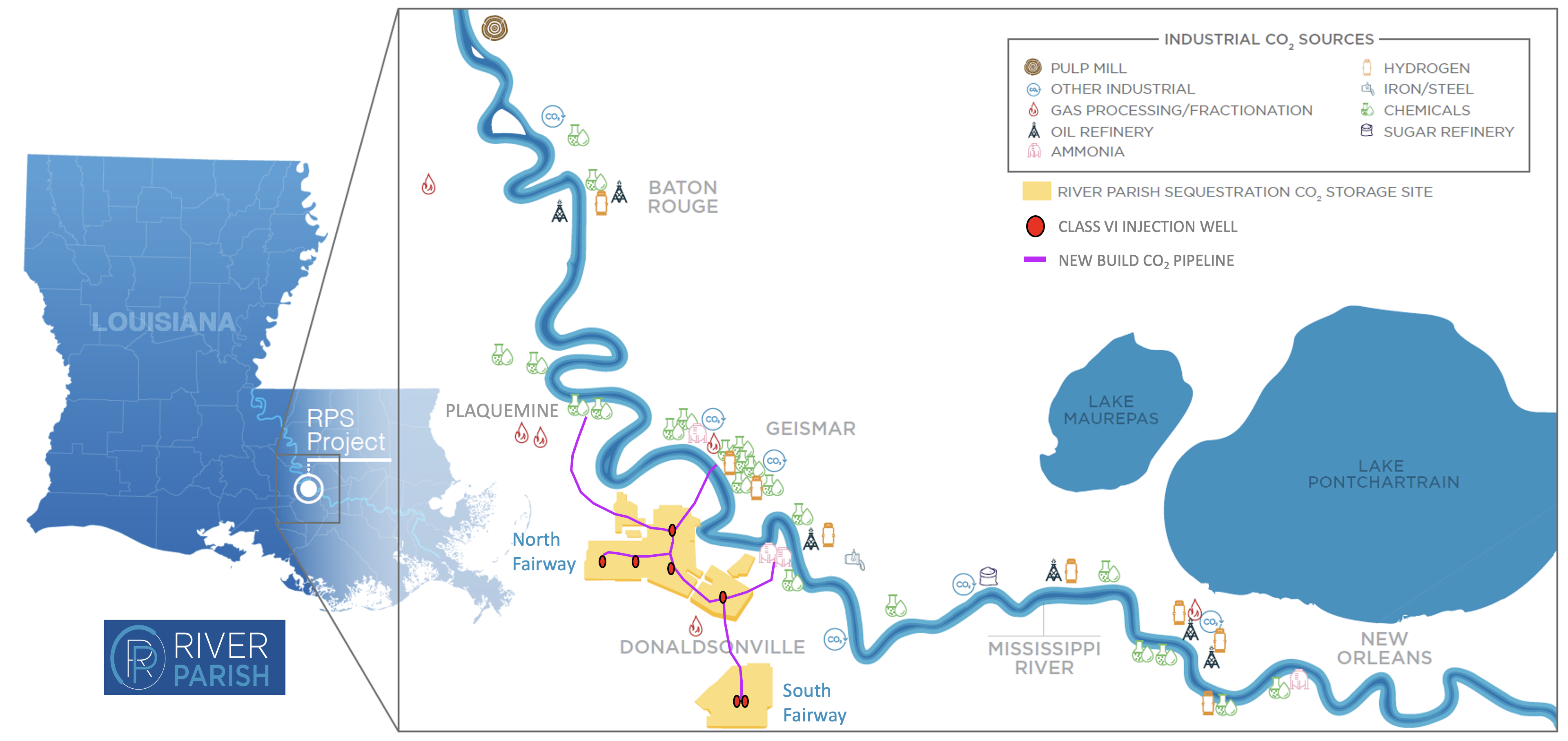
Near the Geismar-Donaldsonville area, Blue Sky Infrastructure has secured underground CO2 injection and storage rights underlying over 30,000 surface acres with geology capable of storing at least 14 million metric tons of CO2 annually and approximately 400 million metric tons of CO2 in aggregate. The injection and storage rights provide Blue Sky Infrastructure with access to world-class underground CO2 sequestration reservoirs, with 2,000-3,000 vertical feet of usable injection formations. The injection zones are saline-saturated, highly porous and permeable sandstone packages 5,000 to 11,000 feet beneath the surface. Multiple redundant sealing layers hundreds of feet thick comprised of impermeable shales, mudstones, and marls above and below the injection reservoirs ensure injected CO2 remains permanently confined in the storage zones.
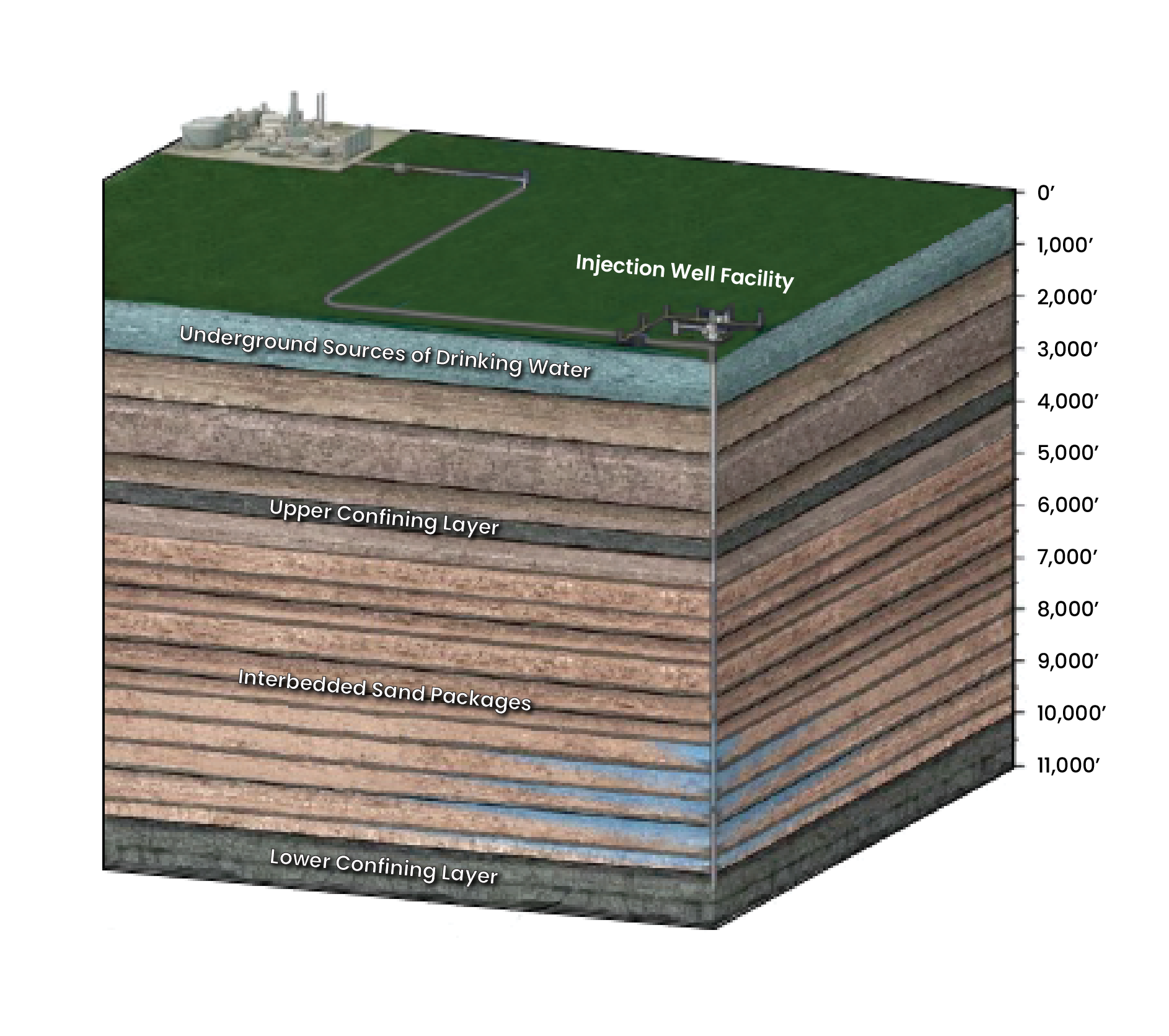
Blue Sky Infrastructure’s storage locations were strategically selected to provide for the lowest cost CO2 transportation and sequestration solution in the region and the least complex permitting and execution pathway.
Our selection criteria included proximity to industrial CO2 sources, avoiding population centers, minimal subsurface complexity (e.g., faulting and lithological heterogeneity), avoiding existing artificial penetrations (e.g., existing oil and gas wells), minimal sensitive environmental resource impacts (including protected wetlands), and easy surface and utility access. In addition, we designed the pipeline route with no or minimal impacts to communities and sensitive environmental resources and planned for feasible crossings of jurisdictional infrastructure and congested utility corridors.
Blue Sky Infrastructure commenced the permitting process for multiple EPA Class VI CO2 injection wells and key pipeline system permits.
Blue Sky Infrastructure’s River Parish Sequestration Project is expected to be ready to begin transportation and sequestration in 2026.
Blue Sky Infrastructure’s storage locations were strategically selected to provide for the lowest cost CO2 transportation and sequestration solution in the region and the least complex permitting and execution pathway.
Our selection criteria included proximity to industrial CO2 sources, avoiding population centers, minimal subsurface complexity (e.g., faulting and lithological heterogeneity), avoiding existing artificial penetrations (e.g. existing oil and gas wells), minimal sensitive environmental resource impacts (including protected wetlands), and easy surface and utility access. In addition, we designed the pipeline route with no or minimal impacts to communities and sensitive environmental resources and planned for feasible crossings of jurisdictional infrastructure and congested utility corridors.
Blue Sky Infrastructure commenced the permitting process for multiple EPA Class VI CO2 injection wells and is preparing for key pipeline system permits.
Blue Sky Infrastructure’s River Parish Sequestration Project is expected to be ready to begin transportation and sequestration in 2026.
RPS Project Provides Significant Benefits
Carbon capture and underground storage of CO2 (CCS) has meaningful economic benefits for America, the State of Louisiana, and particularly for the Mississippi River industrial and chemical corridor (Louisiana Industrial Corridor). Blue Sky Infrastructure estimates at least $50 billion of CCS investment across the Louisiana Industrial Corridor over the coming decades to decarbonize existing and new-build facilities. The River Parish Sequestration project that will serve as a large-scale and low-cost CO2 storage hub for the Louisiana Industrial Corridor will help to catalyze this investment.
The successful deployment of CCS in the Louisiana Industrial Corridor will competitively advantage existing and future facility operators at the base of the cost-curve for low carbon heavy industry, thereby enhancing the competitiveness of U.S. heavy industry and strengthening export opportunities for US manufacturers.
Key Project Milestones
Pore Space
CO2 injection and storage rights underlying over 32,000 surface acres across Ascension, Assumption, and Iberville Parishes.
Storage Facilities
Palo Alto Stratigraphic Test Well
In Q2 2023, we successfully drilled the Palo Alto stratigraphic test well in Ascension Parish, the first test well in Louisiana’s River Parishes. We recovered 640 feet of whole core, sampled formation fluids, and ran a full suite of wireline logs. Analysis of the test well data indicates the geology underlying our storage site acreage is very well suited for large-scale CO2 sequestration.
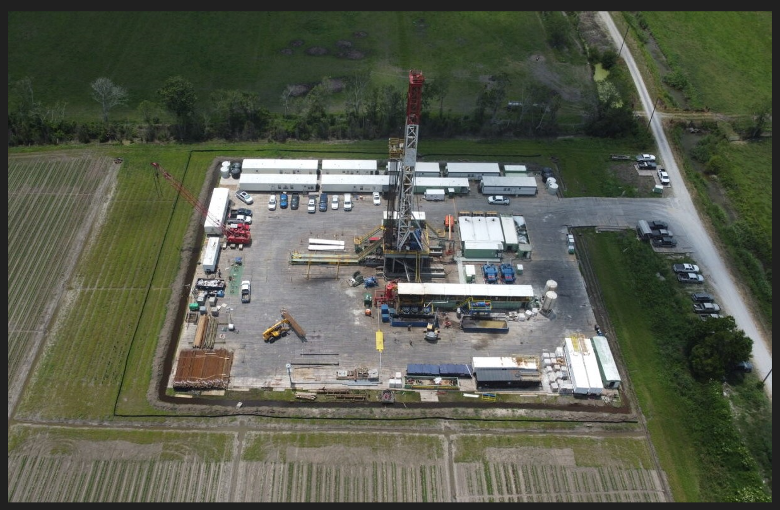
Smoke Bend Seismic Survey
In Q2 2023, we conducted the Smoke Bend seismic survey to supplement existing 3D and 2D seismic coverage. With the Smoke Bend survey, Blue Sky has seismic survey coverage for its first three injection well locations.
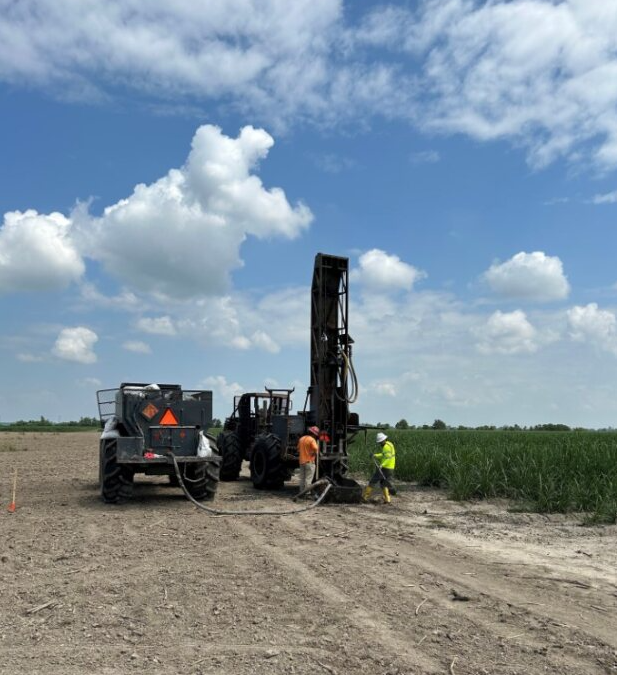
Class VI Permit Applications
In Q2-Q3 2023, we submitted Class VI permit applications to EPA Region 6 and Louisiana Department of Natural Resources (LDNR) Injection and Mining Division. The Class VI applications for the RPS Project were then deemed administratively complete by EPA Region 6.

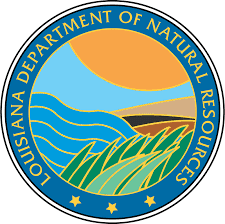
Pipeline System
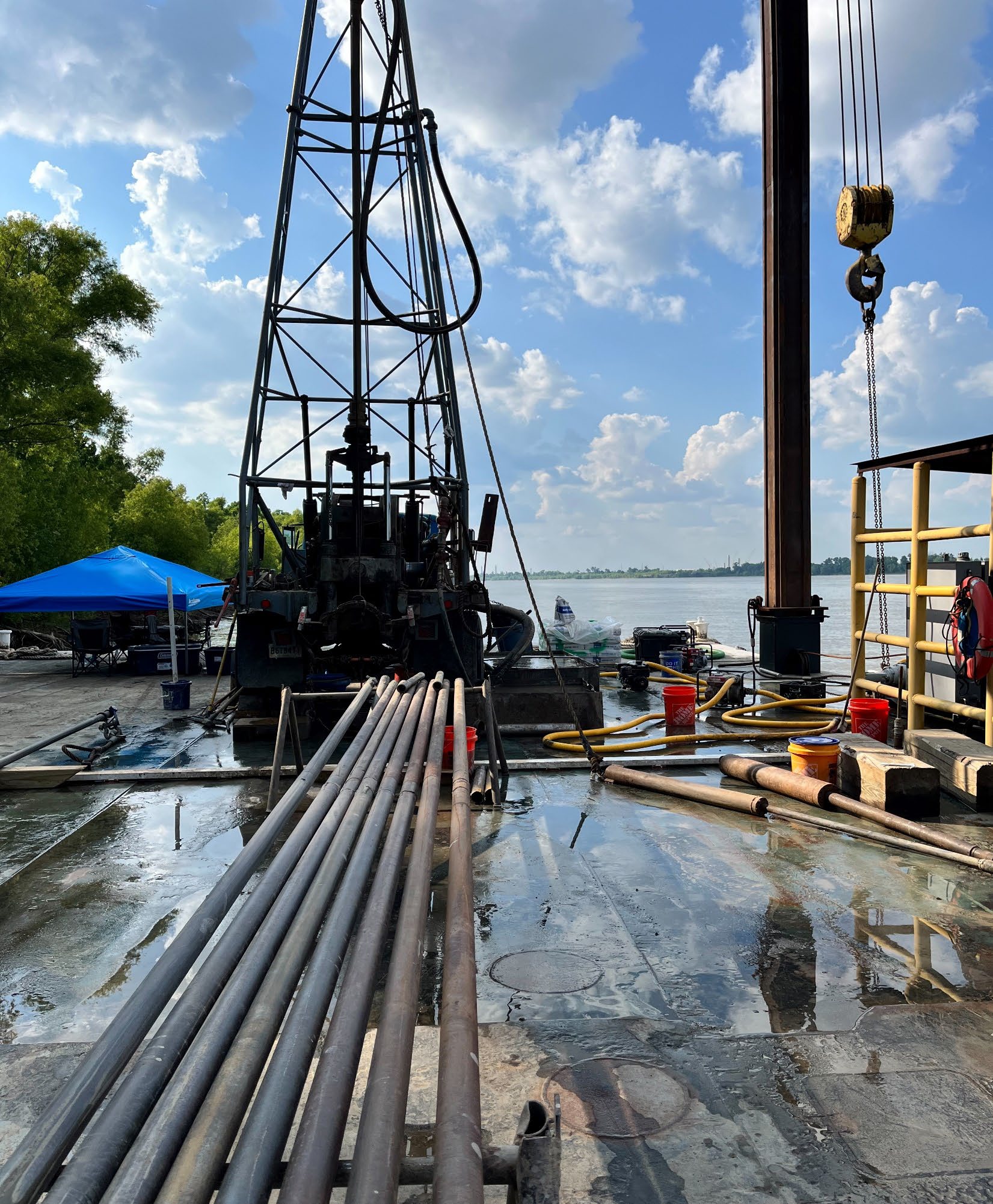
Survey and Geotechnical Analysis
In Q1-Q2 2023, we surveyed the initial phase of the RPS Project’s pipeline route and storage sites, including geotechnical borings for a pipeline crossing of the Mississippi River to connect CO2 sources in Geismar to our storage site.
Joint Permit Application
In Q2 2023, we submitted a Joint Permit Application to the U.S. Army Corp of Engineers and LDNR, Office of Coastal Management.
In Q3 2024, we received the permit for the pipeline connecting the storage site to Geismar.
DOE CarbonSAFE Grant
In September 2024, the U.S. Department of Energy awarded the River Parish Sequestration Project with $32.2 million in grant funding under the Carbon Storage Assurance Facility Enterprise (CarbonSAFE) Program. The grant funding will support site characterization activities and will help advance and de-risk project development to enable commercialization and commercial operations.
The website for our grant project, which includes current Requests for Proposals, is www.riverparishseq.com.

Expected Future Milestones
The DOE grant funding will be used to complete the following activities:
- Conduct an aerial magnetic survey
- Conduct a 3D seismic survey
- Drill a stratigraphic test well and collect rock core for analyses
- Engineer and design portions of the pipeline system
- Implement a Community Benefits Plan
Community Benefits Plan & Community Engagement
RPS has started to develop a comprehensive Community Benefits Plan to provide direct benefits to the communities where the project is located. Components of the Community Benefits Plan include:
- Establishing a Community Benefits Fund to pay for projects and programs that directly benefit local communities that is funded with a portion of the RPS Project’s revenue.
- Working with River Parishes Community College to provide curriculum support and guest lecture opportunities to help students better prepare for jobs in energy transition fields.
- Hosting and sponsoring community engagement events, which will be fostered by LSU, throughout the life of the project.
- Developing a plan to generate quality jobs during construction and operation of the project.
